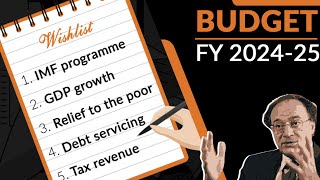The jungle-covered hills in Thailand's Muslim south once hid a well-organised insurgent army that struck terror into the nation. After years of peace, the separatist threat is rising again.
Ahmad Benno, a local co-ordinator for the Thai Rak Thai party of Prime Minister Thaksin Shinawatra, points to the line of peaks as he drives along a twisting road through troubled Narathiwat province.
"Fifteen years ago these hills were full of separatists. Now they are empty but there is no doubt that the separatists are once more on the rise," he told AFP.
"There was no separatist feeling before the army arrived in January. People here are loyal Thais, a Thai flag flies from every house but they feel persecuted now and there is a lot of growing anger."
At a roadside coffee shop customers in checked sarongs list a litany of complaints including false arrests, the disappearance of a prominent Muslim lawyer defending suspected members of terror group Jemaah Islamiyah (JI), and the hand of major political parties in violence that exploded in January.
The two main complaints are harassment by security forces - police and army drafted in by the Bangkok administration - and Thailand's military engagement in Iraq where it has sent a 400-strong contingent.
"There are many problems but only one clear answer and that is a self-administered area which is still part of Thailand, but can satisfy the very different religious and cultural needs of people living here," said Ahmad.
Torn by unrest and a profound mistrust of authority, Thailand's deep south has witnessed a surge in attacks since a January raid on an army base left four soldiers dead and more than 400 weapons looted.
Since then more than 55 people have been killed in brutal hit-and-run strikes, mostly police and government workers who have been shot or slashed to death with machetes.
The fear of large-scale attacks has escalated after a raid on a quarry last week saw masked gunmen escape with a huge quantity of ammonium nitrate - a fertiliser used in the Bali bombings - as well as dynamite and detonator caps.
The raid came just days after the first strike against a civilian target - a bomb blast at a bustling tourist strip in Sungai Kolok on the Malaysian border which injured 28 people including eight visiting Malaysians.
Political analysts and government ministers are divided about who is responsible for the violence - some point to gangsters while others say Islamic activists are to blame.
The region's spiritual leaders are reluctant to say who the culprits are, but agree the government's heavy-handed response is feeding a vicious circle of anger and militancy.
"I don't want to talk about who is behind the violence," Narathiwat Muslim Council president Abdulrahman Abdulsamut said on the sidelines of a crisis meeting of local and national officials.
"But Muslims here think about justice and it has not been fair for Muslims for a long time."
"The government has heard all our complaints before but nothing ever changes and nothing will change this time and everybody knows it," said another Muslim politician who like many here declined to be named for fear of reprisals.
"We don't like seeing the re-emergence of the main separatist groups or these new ones we don't even know anything about but if the people don't play politics then politics will play the people," said a village headman.
In a frank admission, Thailand's deputy premier Chaturon Chaisang acknowledged Friday that killings, torture and kidnappings of residents in southern Thailand by government agents had fuelled the violence.
"The main cause of the problem has been government officials who are alleged to have tortured and killed people which has fuelled the problem of terrorism and separatism," Chaturon said after touring the restive provinces.
The south's predominantly Malay Muslim community thrived for centuries as an independent Islamic empire until it was annexed a century ago by Buddhist-majority Thailand.
The region was largely ignored by Bangkok until the 1970s when a deadly Muslim insurgency forced it to take action.
The activists faded by the early 1990s as the first Muslim politicians hit the national stage and the region was targeted for large budget increases by central authorities.
"A few years ago the government decided the separatist were finished and dismantled the organisations which allowed the army and police to co-ordinate information and for the people to talk to both of them," said Perayot Rahimmula, a noted analyst on the south.
"Now nobody has anywhere to take their complaints of injustice and human rights abuses to now and so the tensions just build."
BR100
8,052
Increased By
75.9 (0.95%)
BR30
25,581
Decreased By
-21.4 (-0.08%)
KSE100
76,707
Increased By
498.6 (0.65%)
KSE30
24,698
Increased By
260.2 (1.06%)


















Comments
Comments are closed.